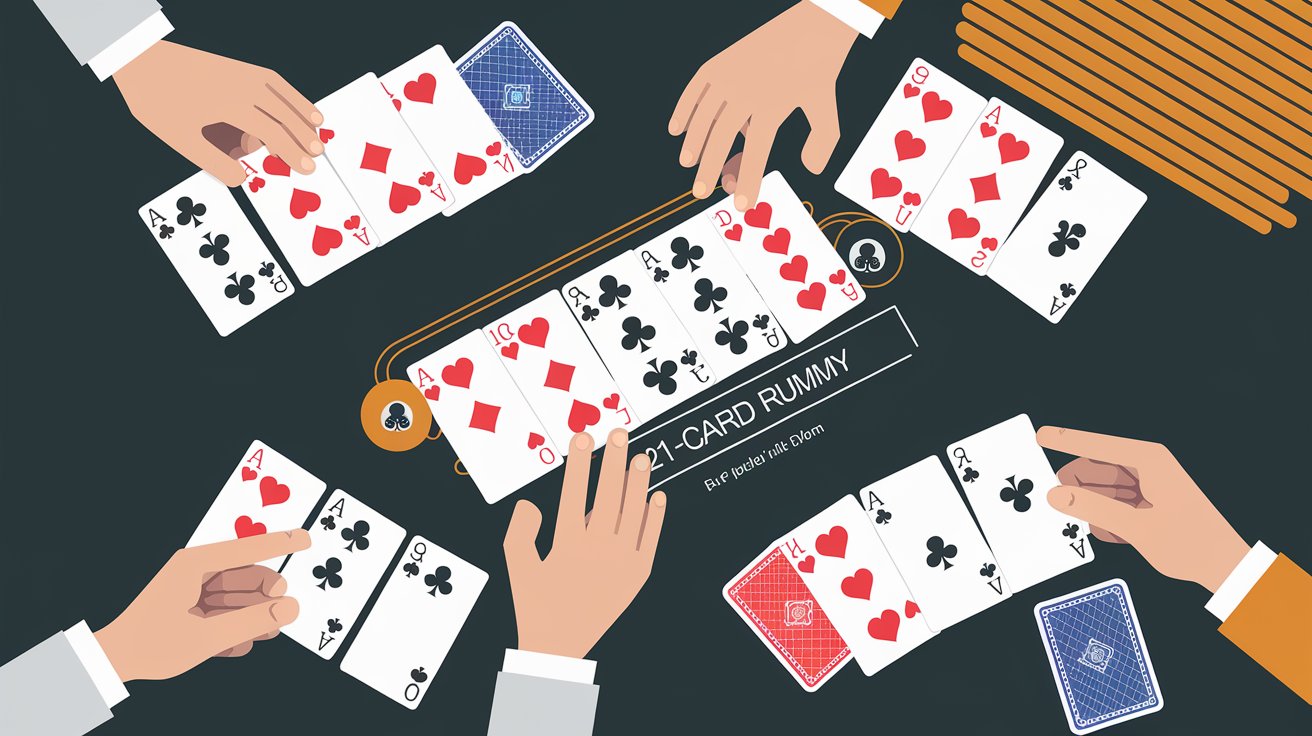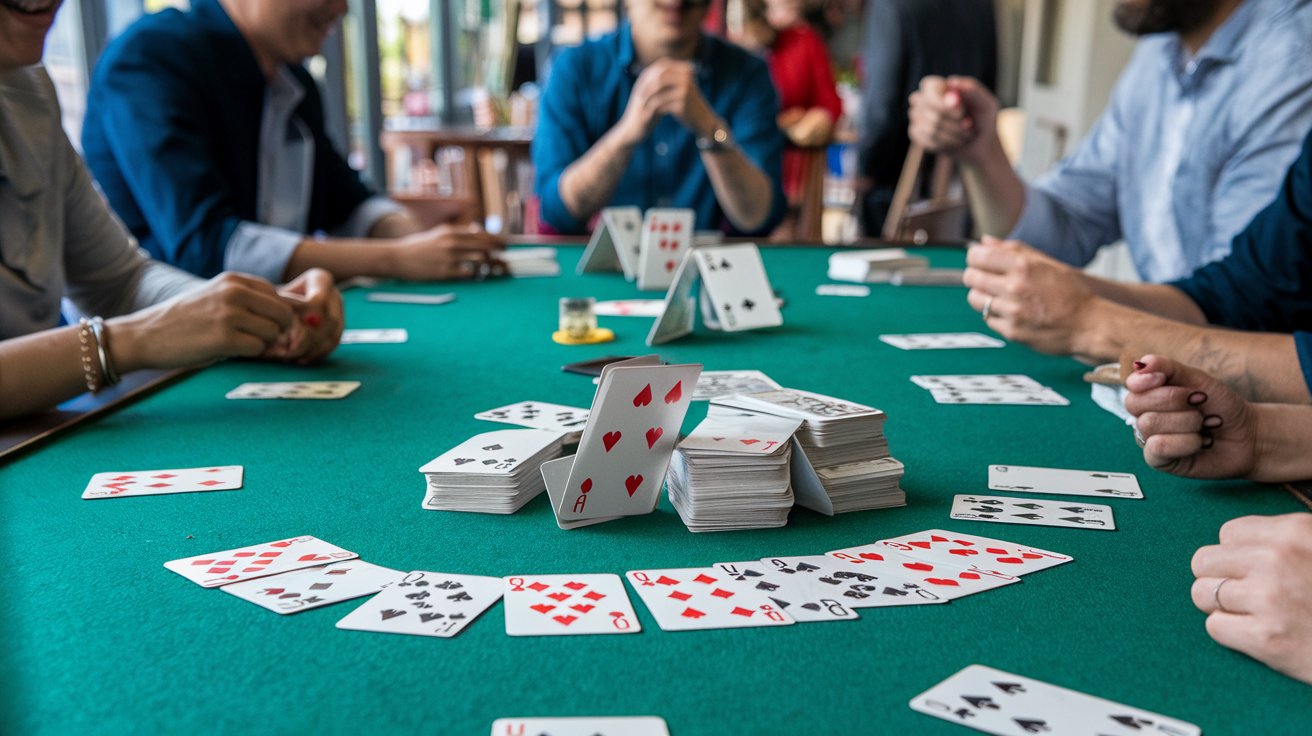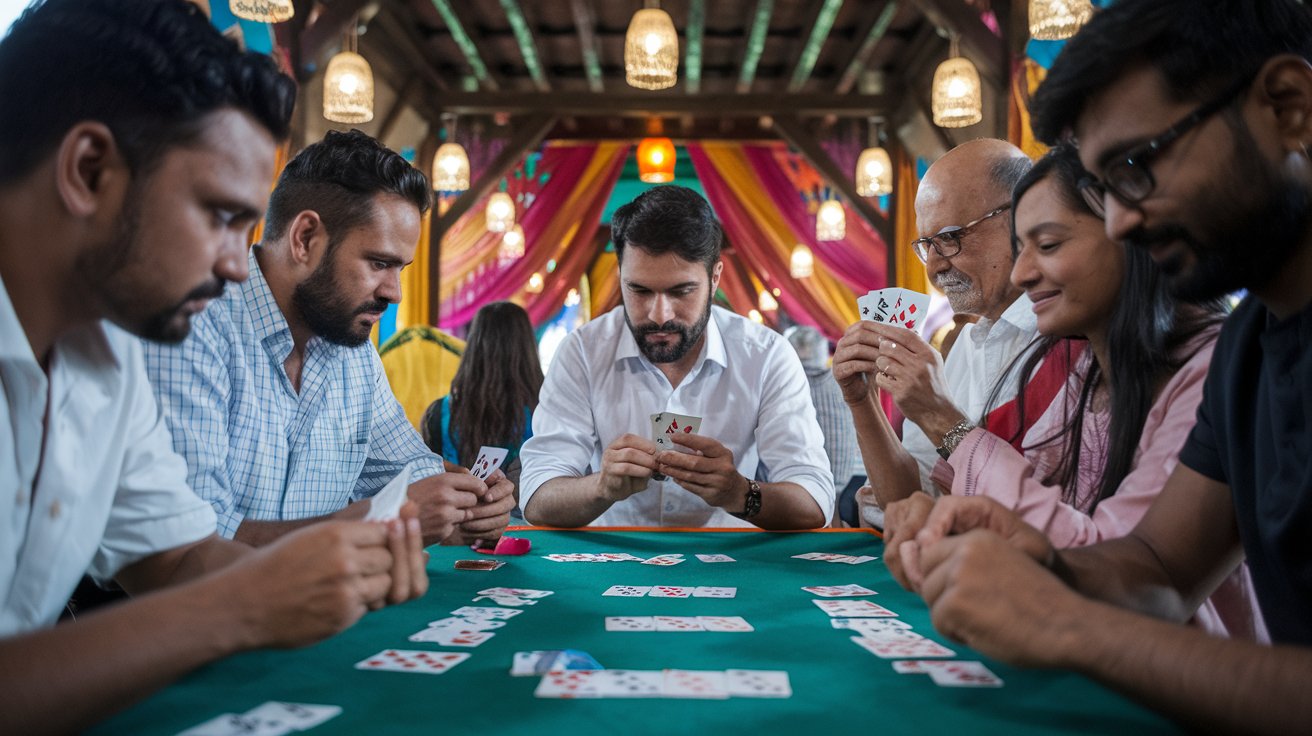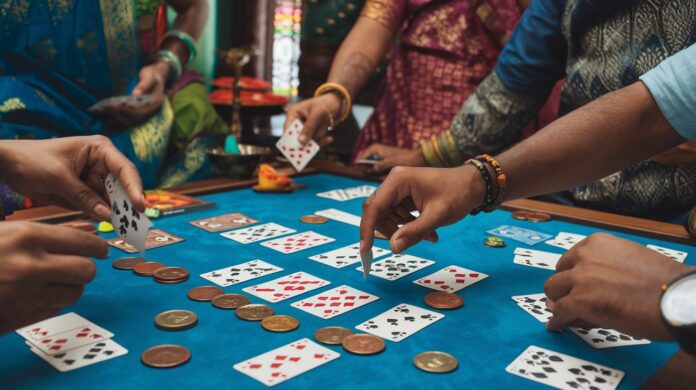Rummy games have captivated card players worldwide for generations, with countless regional variations emerging across different cultures. Among these diverse variants, 21-Card Rummy stands out as a particularly engaging and strategic version that has gained immense popularity in India and beyond. This intriguing variant raises the stakes by dealing more cards to each player, creating a deeper strategic experience that rewards careful planning and adaptability.
In this comprehensive guide, we’ll explore everything you need to know about 21-Card Rummy—from its origins and basic rules to advanced strategies that can help you master this compelling card game. Whether you’re a rummy enthusiast looking to expand your repertoire or a curious beginner interested in learning a new variation, this deep dive will equip you with the knowledge needed to understand and excel at 21-Card Rummy.
What Is 21-Card Rummy?

21-Card Rummy, as the name suggests, is a rummy variant where each player receives 21 cards instead of the 13 cards used in traditional Indian Rummy. This seemingly simple numerical difference creates a substantially different gaming experience with unique challenges and strategic considerations.
The increased hand size allows for more complex combinations, longer gameplay, and greater strategic depth compared to its 13-card counterpart. Popular primarily in certain regions of India, particularly in southern states like Tamil Nadu and Kerala, 21-Card Rummy has been a staple at family gatherings and social events for decades.
Origins and History
While the exact origins of 21-Card Rummy aren’t definitively documented, it evolved as a natural extension of traditional rummy games that were introduced to the Indian subcontinent during the British colonial period. Over time, local players modified these games to suit their preferences, leading to the development of distinctive regional variations.
21-Card Rummy likely emerged from players seeking a more challenging and time-consuming version of the game for extended social gatherings. The increased number of cards created a game that required greater concentration, memory skills, and strategic planning—perfect for demonstrating card-playing prowess among friends and family.
Equipment Needed for 21-Card Rummy
To play 21-Card Rummy, you’ll need:
- Cards: Three standard 52-card decks (including jokers) for 2-4 players
- Players: Ideally 2-4 players (the game becomes unwieldy with more)
- Surface: A large table with enough space for extensive melds
- Optional: A dedicated rummy board or mat with designated areas for the draw pile, discard pile, and melds
- Scoring: Paper and pencil for keeping score
Basic Rules of 21-Card Rummy

Game Setup
- Seating Arrangement: Players sit in a circle, typically clockwise.
- Card Distribution: The dealer shuffles the three decks together and deals 21 cards to each player.
- Creating the Stock and Discard Piles: After dealing, the dealer places one card face-up to start the discard pile and places the remaining cards face-down to form the draw (stock) pile.
- Joker Selection: A random card is drawn from the middle of the deck to serve as the wild card joker for the game. All cards of the same rank become wild jokers.
Valid Combinations
To succeed in 21-Card Rummy, you must arrange your cards into valid combinations:
- Pure Sequence: Three or more consecutive cards of the same suit without using any jokers or wild cards. Example: 5♥, 6♥, 7♥, 8♥
- Impure Sequence: Three or more consecutive cards of the same suit where one or more cards are replaced by jokers or wild cards. Example: 9♠, 10♠, Joker (representing J♠), Q♠
- Sets: Three or four cards of the same rank but different suits. Example: 4♥, 4♠, 4♦, 4♣
Mandatory Requirements
The core requirement in 21-Card Rummy is that to declare and win, a player must have:
- At least two sequences, with a minimum of one pure sequence (without jokers)
- All remaining cards formed into valid sets or sequences
- No unmatched or loose cards
This requirement is non-negotiable and forms the foundation of the game’s strategic challenge.
Gameplay Process
The gameplay follows a familiar pattern to other rummy variants:
- Turn Order: Play proceeds clockwise from the dealer.
- Drawing: On your turn, you must first draw one card—either the top card from the stock pile or the top card from the discard pile.
- Arranging: You can reorganize your hand to form or improve sequences and sets.
- Discarding: End your turn by discarding one card face-up onto the discard pile.
- Melding: Unlike some rummy variations, in 21-Card Rummy, players typically do not lay down their combinations until they are ready to declare.
Declaring and Winning

When a player has arranged all 21 cards into valid combinations (meeting the mandatory requirements), they can “declare” by placing their cards face-up, showing all the valid sequences and sets they’ve formed.
If the declaration is valid (all combinations are correct and meet requirements), that player wins the hand. If the declaration is invalid (missing a pure sequence or having improper combinations), the player who made the incorrect declaration loses and receives penalty points.
Scoring System
21-Card Rummy typically uses a points system where:
- Cards 2 through 10: Face value (2=2 points, 3=3 points, etc.)
- Face cards (J, Q, K): 10 points each
- Ace (A): 10 points
- Jokers: 0 points
When a player declares successfully, other players tally the points of their unmatched cards. These become penalty points added to their score. The goal is to maintain the lowest score possible.
Key Differences from 13-Card Rummy
Understanding how 21-Card Rummy differs from its 13-card cousin helps appreciate its unique challenges:
- Longer Gameplay: With 21 cards per player, hands typically take longer to complete.
- Greater Complexity: Managing 21 cards requires more concentration and memory.
- More Sequences Required: While 13-Card Rummy typically requires a minimum of 2 sequences, 21-Card Rummy often requires 3-4 sequences due to the larger hand size.
- More Strategic Depth: With more cards comes more potential combinations and strategic options.
- Higher Probability of Matching Cards: With three decks in play, there’s a higher chance of finding matching cards for sets.
- Different Drop Values: The drop system (penalties for leaving a game early) is often adjusted to account for the higher maximum point values possible with 21 cards.
Advanced Rules and Variations
Various regions play 21-Card Rummy with slight rule modifications:
Drop System Variations
Most games include a drop system that allows players to exit a hand early:
- First Drop: Leaving before playing any cards = 25-30 points penalty
- Middle Drop: Leaving after playing at least one card = 50-60 points penalty
- Last Drop: Being caught with unmatched cards when someone declares = Sum of unmatched card values
Pool Rummy vs. Points Rummy
21-Card Rummy can be played in different formats:
- Pool Rummy: Players start with a fixed number of points (typically 101, 201, or 301) and are eliminated when they exceed that limit.
- Points Rummy: Each game is separate, with points converted to cash values.
- Deals Rummy: A fixed number of deals are played, and the player with the lowest points at the end wins.
Group Play Variations
Some variations allow for team play:
- Partnership 21-Card Rummy: Players team up in pairs, combining strategies.
- Team Rotation: Players rotate teams after each hand to balance skill levels.
Essential Strategies for 21-Card Rummy
The increased hand size in 21-Card Rummy necessitates unique strategic approaches:
1. Pure Sequence First Strategy
Prioritize forming at least one pure sequence as early as possible. This fulfills the mandatory requirement and gives you flexibility with the rest of your hand.
2. Card Sorting Techniques
With 21 cards, efficient organization is crucial:
- Arrange cards by suit and sequence to visualize potential combinations
- Group potential sets together
- Place jokers and wild cards separately until you determine their optimal use
3. Group Management Strategy
Due to the large hand size, consider dividing your strategy into “card groups”:
- Dedicate specific suits to pure sequences
- Reserve certain ranks for creating sets
- Maintain a “flexible zone” of cards that could work in multiple combinations
4. Smart Discard Prioritization
With more cards comes more complex discard decisions:
- Discard high-value single cards first (K, Q, J, A)
- Avoid discarding middle cards (6, 7, 8) that can form parts of multiple sequences
- Track discards to avoid giving opponents needed cards
- Consider discarding cards from suits where you already have formed a pure sequence
5. Joker Utilization
With three decks, you’ll have more jokers in play:
- Reserve jokers for high-value card substitutions when possible
- Use jokers to complete sets faster if you already have your pure sequences
- Consider saving jokers for later in the game when their optimal use becomes clearer
Advanced Winning Techniques
For serious players looking to master 21-Card Rummy:
1. Card Counting and Probability Assessment
With three decks in play, card counting becomes both more challenging and more rewarding:
- Track how many cards of each rank have been discarded
- Calculate probabilities of drawing needed cards
- Pay special attention to discards of cards adjacent to those you need for sequences
2. Multi-Phase Strategy
Break your gameplay into distinct phases:
- Early Game (First 5-7 Turns): Focus on identifying potential pure sequences and discarding isolated high-value cards
- Mid Game (Next 8-12 Turns): Solidify pure sequences and begin developing sets with remaining cards
- Late Game (Final Turns): Make final adjustments, use remaining jokers optimally, and prepare for declaration
3. Defensive Play
With 21 cards per player, defensive strategy becomes more important:
- Observe which cards opponents pick from the discard pile
- Avoid discarding cards that might help opponents complete obvious sequences
- Consider holding onto cards that opponents appear to need, even if they’re not immediately useful to you
4. Bluffing Techniques
Psychological play can be effective in 21-Card Rummy:
- Occasionally pick from the discard pile even if the card isn’t immediately useful
- Maintain a consistent pace regardless of your hand quality
- Consider deliberate misleading discards to create false impressions about your hand
5. Flexibility and Reassessment
With 21 cards, being flexible is crucial:
- Reassess your hand after every 3-4 turns
- Be willing to abandon struggling combinations in favor of more promising ones
- Look for alternative ways to group your cards if your initial strategy isn’t developing
Common Mistakes to Avoid
Even experienced players can fall into these traps in 21-Card Rummy:
1. Hand Overload
The most common mistake is trying to track too many potential combinations simultaneously, leading to confusion and missed opportunities. Focus on establishing your core requirements first.
2. Joker Mismanagement
With more jokers in play, using them inefficiently can be costly. Avoid using jokers where natural cards would suffice, and don’t commit them too early.
3. Ignoring Opponent Draw Patterns
With longer gameplay, patterns in opponents’ drawing and discarding become more meaningful and predictable. Failing to observe these patterns is a missed strategic opportunity.
4. Late Game Impatience
As the game progresses, impatience can lead to premature declarations or risky plays. Maintain discipline throughout the entire hand.
5. Inadequate Card Organization
Poor physical arrangement of your 21 cards can lead to overlooked combinations or forgotten cards. Develop a consistent organizational system.
Playing 21-Card Rummy Online
The digital age has made 21-Card Rummy more accessible:
Popular Platforms
While less common than 13-Card Rummy online, several platforms offer 21-Card Rummy:
- RummyCircle
- Ace2Three
- RummyCulture
- Junglee Rummy
Benefits of Online Play
- Automated card organization
- Quick dealing and scoring
- 24/7 availability of games
- Ability to play with players worldwide
- Practice opportunities with lower stakes
The Cultural Significance of 21-Card Rummy
In regions where it’s popular, 21-Card Rummy holds cultural importance:
Social Gatherings
The game often serves as a centerpiece at family gatherings, festivals, and celebrations, creating intergenerational bonding opportunities.
Cognitive Development
The complex nature of managing 21 cards promotes memory skills, concentration, and strategic thinking, making it a favored activity for keeping minds sharp.
Regional Identity
In certain parts of India, proficiency in 21-Card Rummy is considered a point of pride and cultural identity, with regional tournaments and competitions held regularly.
Cognitive and Social Benefits
Regular 21-Card Rummy play offers several benefits:
Mental Benefits
- Enhanced Memory: Tracking 21 cards exercises working memory
- Improved Concentration: The complexity requires sustained focus
- Strategic Thinking: Planning multiple combinations develops strategic abilities
- Pattern Recognition: Identifying potential sequences sharpens pattern recognition
- Probability Assessment: Calculating odds develops mathematical thinking
Social Benefits
- Improved Communication: Partnership variations encourage effective communication
- Social Bonding: Creates shared experiences and builds relationships
- Healthy Competition: Provides a structured environment for competitive instincts
- Patience Development: The longer gameplay builds tolerance for extended focus
Conclusion: Mastering the Art of 21-Card Rummy
21-Card Rummy represents one of the most challenging and rewarding variants in the rummy family. With its increased hand size and strategic complexity, it offers a uniquely satisfying experience for players who enjoy deeper gameplay and more intricate decision-making.
Whether you’re playing casually with family, competing in local tournaments, or exploring online platforms, the strategies outlined in this guide provide a foundation for developing your skills. Remember that mastery comes through practice, observation, and continuous learning.
As with any card game, luck plays a role, but in 21-Card Rummy, the extended gameplay gives skilled players more opportunities to overcome bad luck through superior strategy. The game rewards patience, concentration, and adaptability—qualities that serve well both at the card table and beyond.
So gather your cards, deal those 21-card hands, and embark on the rewarding journey of mastering this fascinating Indian rummy variant. With each hand, you’ll discover new combinations, develop sharper strategies, and deepen your appreciation for a game that has entertained and challenged players for generations.
Whether you’re looking to connect with Indian card-playing traditions, sharpen your mental acuity, or simply enjoy a more complex rummy experience, 21-Card Rummy offers rich rewards for those willing to learn its nuances and embrace its strategic depth.

Zareb Saleh is a journalist at Gulf Today and a ghostwriter for Gameoholic, specializing in gaming, technology, and digital culture. With a keen eye for industry trends, he delivers insightful stories that engage and inform readers.




